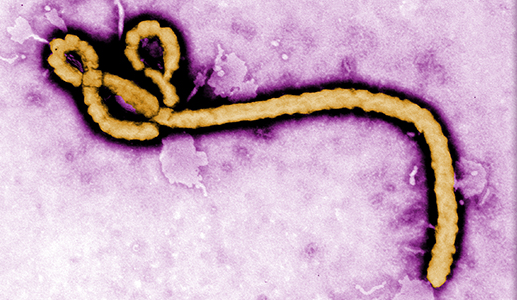The Ebola outbreak began in December 2013 in the small village of Meliandou in Guinea, when a two-year old boy became ill. After his death on Dec. 6, the virus quickly spread to others in the community and region.
Almost a year later, Ebola has become a major global health crisis. What once could have been easily contained has now exploded into an epidemic. Since the outbreak began almost a year ago, 14,413 cases of Ebola and 8,920 deaths have been reported, according to the Centers for Disease Control and Prevention (CDC). It is believed that there could be 1.4 million cases of Ebola by January 2015 if current infection rates continue.
Unfortunately, U.S. health authorities have been slow to formulate a response. The CDC began issuing updates, travel warnings and guidelines in July 2014, months after the virus emerged. President Obama’s pledge to send about 3,000 U.S. medical and military personnel to West Africa, while noble, did not come until the end of September. “Enhanced” screening for travelers from West Africa at U.S. airports, including Dulles, was not deployed until the end of October. A quick, aggressive response was the best way to have a chance of containing the virus, and the U.S. wasted the opportunity to do so.
Moving forward, efforts must be focused on keeping our country safe at home, but the most effective means of doing that is controlling Ebola at its origin.
More emphasis needs to be placed on fighting Ebola in Sierra Leone and Guinea, especially in rural areas. Current efforts have also focused mainly on Liberia, even though the transmission of Ebola in that country is beginning to slow. No U.S. military personnel have been sent to Sierra Leone, and the situation there and in Guinea remains dire. Sierra Leone has an urgent need for more ambulances, and health workers are struggling to control the virus in Guinea’s forests. The Ebola virus moves quickly, flaring in remote areas before seemingly dying out, only to return later. Field hospitals need to be stationed in multiple geographic areas, both where Ebola is active and where it might appear.
In the U.S., we need to make reasonable precautions. While at first it seems like a good idea, a travel ban from West African countries causes more harm than good. Flights to and from the region are essential transportation for volunteers helping to combat Ebola. If airline service between the U.S. and West Africa were suspended, then it would be expensive and difficult for health workers to go to the region, we must not hinder their efforts. If people could not leave Africa by normal means, they would turn to illegal ways of travel. In this situation, they would not be able to be tracked for signs of the virus.
Without overreacting, we must take measures to prevent Ebola from being transmitted within the U.S. Take Louisiana officials’ decision to ban health workers who had been in Africa from attending a conference, for example. This is ridiculous: the very people needed to work on strategies for fighting the virus were prevented from doing so. A better course of action for travelers entering the U.S. from Ebola-affected countries is mandatory self-monitoring for 21 days, with daily health updates for authorities. Quarantine is unnecessary and counterproductive when people have no signs of symptoms, especially because the virus is only contagious when symptoms are present.
In addition, Ebola victims in our country must be treated only at the four U.S. hospitals that have specially equipped biohazard containment units. Ordinary hospitals are unfamiliar with the Ebola virus and unprepared to treat it. Texas Presbyterian Hospital originally sent away Thomas Eric Duncan, the first patient to be diagnosed with the virus in the United States, even though he reported Ebola-like symptoms and recent travel to West Africa. During his treatment, two nurses contracted the virus. Isolation of Ebola patients and the following of proper safety procedures are critical to preventing the spread of the virus in the United States.
While it is imperative to take precautionary measures here, the most effective way to protect our country is to fight the virus in West Africa. In today’s world, Ebola has the means to quickly expand beyond the region. Media coverage has contributed to an unjustified fear in the U.S., but this nightmare could become reality if we do not actively support health workers in West Africa.
Categories:
What the U.S. needs to do about Ebola
January 13, 2015

courtesy cdc.gov




